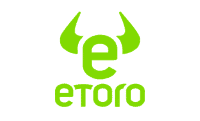The Best Bitcoin and Cryptocurrency Exchange Guide
Choosing the best cryptocurrency exchange can be an exhausting task. This post will explain the important factors to take into account when choosing an exchange. I will also give you a review summary of the leading cryptocurrency exchanges around.
Don’t like to read? Here’s a 2-minute video of this guide:
Best Bitcoin and Cryptocurrency Exchange Summary
Here are my top picks for the best cryptocurrency exchange by category:
The main things to look for when choosing an exchange are:
- What type of exchange is this? (Broker, trading platform, etc.)
- Does this exchange support the coins I want to trade?
- Does this exchange accept users from my country?
- Does this exchange accept my payment method?
- What are the fees and buying limits for the exchange?
Finally, before deciding on an exchange, make sure to read several online reviews to get a feel of the exchange’s reputation. That’s how to choose an exchange in a nutshell.
If you want a more detailed explanation of cryptocurrency exchanges and detailed reviews, keep reading this post. Here’s what I’ll cover:
- How to Convert Cryptocurrency to Real Money/Cash
- Types of Exchanges
- What are the Best Bitcoin and Crypto Exchanges?
- Exchange Features
- KYC
- Conclusion and Exchange Review Summary
1. How to Convert Cryptocurrency to Real Money/Cash
Cryptocurrency exchanges are companies that allow you to exchange “real money” (i.e., USD, EUR, etc.), also known as fiat money, to cryptocurrencies like Bitcoin or Ethereum and vice versa. The exchange is a website that helps you facilitate this trade.
But not all exchanges are equal…
2. Exchange Types
It’s important to understand that not all cryptocurrency exchanges are alike. Some allow you to trade with other users, while other exchanges will only sell you cryptocurrency directly. Some will not even give you the actual coins but will only allow you to speculate on the price.
Let’s break down the different types of exchanges.
Brokers
Brokers are sites that simplify the buying process by allowing you to buy coins through them directly at a premium. When you buy from broker sites, the process is usually much simpler and less confusing, but it’s also more expensive.
Examples of reputable brokers: Coinmama, and Coinbase.
Trading platforms
Trading platforms are sites that connect buyers with sellers anonymously in an automated form. This means that you buy from people who’ve placed sell orders on the site without ever communicating with them directly. The platform usually takes a small fee for the service.
Conducting transactions on trading platforms is usually the cheapest way to get bitcoins or other coins, but often it’s not very user-friendly. Trading platforms have advanced options, such as limit-orders and stop-losses, that can confuse inexperienced users.
Also, when you place an order, it may not be fulfilled immediately due to a lack of sellers at the price at which you want to buy.
Examples of reputable trading platforms: Binance, and Bitstamp.
Some trading platforms allow you to trade CFDs (Contracts for Difference). This means you’re basically betting on the price of the coin in the future instead of actually owning it.
While CFDs are very appealing due to their ease of use, they don’t allow you possession of the actual coins. The process is the equivalent of betting on the fact gold will rise in price instead of actually buying gold.
You won’t be able to withdraw the cryptocurrency you bought into your wallet. The only thing you’re doing is buying (or selling) a contract regarding the coin’s price in USD, EUR, or some other form of government currency.
CFDs also allow you to leverage your bets by borrowing money from them (also known as margin trading). While this can give you a great upside for successful trades, it also holds a lot of risk of losing your money very quickly.
Bottom line – CFDs are very risky and are more suitable for experienced traders.
Note: CFD trading is currently illegal in the U.S.
Cross-Asset Class Platforms
Some trading platforms offer assets from multiple different asset classes. Such platforms typically offer major cryptocurrencies alongside assets such as stocks, commodities (including precious metals), and foreign currencies. These platforms make it easy to trade between all types of assets within a single app. This is useful for traders who wish to easily shift some of their portfolios from different asset classes to crypto and vice versa.
Examples of cross-asset platforms: Uphold, Bitpanda, and eToro.
P2P platforms
P2P (Peer-to-Peer) platforms connect buyers and sellers directly so they can negotiate on a price. While these sites usually allow for a wider array of options (payment methods, supported countries, etc.), they also hold a large amount of risk because you’re buying from an unvetted individual.
Examples of reputable P2P platforms: LocalCoinSwap, and Paxful.
3. What are the Best Bitcoin and Crypto Exchanges?
What Are the Best Bitcoin and Crypto Brokers?
Margex
Launched in 2019, Margex is a top Bitcoin and crypto trading platform that offers referral rewards, fast execution speeds, and liquidity from 12+ exchanges. Users are required to pay a fee of just 0.06% per transaction and can also stake BTC to earn passive income. You can read my full Margex review here.
MEXC
Used by more than 10 million customers, the MEXC exchange allows investors to trade over 1,000 crypto tokens. The platform stands out by charging 0% spot trading fees, offering fast execution speeds, and offering access to over 2,000 trading pairs. You can read my full MEXC review here. Leverage trading up to 200x is applied on large-cap tokens such as Bitcoin, Solana, and Ethereum.
OKX
Established in 2015, OKX is a top crypto exchange used by over 50 million customers. The fees on this exchange start from just 0.10%, which can be further reduced by holding $OKB, the native coin. Flexible staking yield can also be unlocked through the ‘Simple Earn’ feature. You can read my full OKX review here.
Exodus
Unlike the above three platforms, Exodus is a non-custodial crypto wallet. Through this platform, users have full control over their private keys and can buy/sell more than 260 tokens. Exodus does not charge any markup fees, offers in-built token swap options, and provides portfolio management tools to users. You can read my full Exodus wallet review here.
What are the Best Cryptocurrency Trading Platforms?
Binance
Binance is a Bitcoin and cryptocurrency exchange that offers a trading platform with one of the most competitive rates around. If you’re looking to trade crypto to crypto only, this is probably the easiest and cheapest way to go. The exchange accepts users from around the world and allows the purchasing of coins with a credit card in certain countries as well (a sort of brokerage service). You can read my full Binance review here.
Bybit
Bybit is a top crypto trading platform, packed with advanced and beginner tools such as futures and perpetual trading, copy trading, and AI-powered trading tools. Playing host to more than 30 million investors, Bybit values security – offering triple-layer asset protection and privacy protection. You can read my full Bybit review here.
BingX
BingX is a top crypto trading platform that lets investors start trading 700+ digital assets without completing a KYC form. This exchange offers short-selling capabilities through its perpetual futures trading options, and lets investors apply up to 150x leverage. The Taker fees on BingX starts from just 0.10% per slide.
What Are the Best Bitcoin and Crypto P2P Platforms?
LocalCoinSwap
LocalCoinSwap brings buyers and sellers together in a marketplace for a range of coins, including BTC and Ethereum. It’s unique in that you can transact in almost any method imaginable, including PayPal, wire transfer, Western Union, WebMoney, credit and debit cards, and cash, with a 1% sell fee. You can read my full LocalCoinSwap review here.
Bitget
Bitget is a popular cryptocurrency exchange and copy-trading platform which has been around since 2018. It provides spot trading and futures trading but is most famous for allowing users to copy other traders.
Bitget users can purchase crypto outright using a debit or credit card, either directly or via a third-party payment processor such as Simplex, Banxa, or Mercuryo.
What Are the Best Cross Asset Class Platforms?


eToro disclaimer: This ad promotes virtual cryptocurrency investing within the EU (by eToro Europe Ltd. and eToro UK Ltd.) & USA (by eToro USA LLC); which is highly volatile, unregulated in most EU countries, no EU protections & not supervised by the EU regulatory framework. Investments are subject to market risk, including the loss of principal.
Don’t invest unless you’re prepared to lose all the money you invest. This is a high-risk investment and you should not expect to be protected if something goes wrong. Take 2 mins to learn moreeToro
**Content does not apply to US users
eToro is one of the most well-known investment platforms in the world, with more than 30 million users around the globe. Although it’s not the easiest platform to withdraw your crypto from, it provides trading for a massive range of assets and asset classes, including hundreds (if not thousands) of commodities, indexes, stocks, cryptocurrencies, and more. You can read my full eToro review here.
PrimeXBT
PrimeXBT is a multi-asset trading platform that allows users to trade cryptos, forex pairs, indices, and commodities. A CFD (Contract for Differences) platform, PrimeXBT allows users to speculate on asset prices rather than purchase the asset themselves. The platform provides markets for dozens of cryptocurrencies with up to 100x leverage, including BTC, ETH, LTC, XRP, SOL, DOGE, and EOS. Popular FX pairs such as EUR/USD and GBP/USD can be traded on PrimeXBT. You can read my full PrimeXBT review here.
Bitpanda
Bitpanda – has become well-known for offering stocks, exchange-traded funds (ETFs), and metals in addition to cryptocurrencies. The platform even offers the ability to spend your balances of any asset class via its Visa Bitpanda Card and Bitpanda app. You can read my full Bitpanda review here.
4. Exchange Features
Next, you’ll need to inquire about the different features of each exchange. Here are the most important ones:
Coins supported: Does the exchange support the type of coin you’re looking to buy and sell? What currency pairs does it offer for that coin? (i.e., what coins can you trade it for?) For example, an exchange offering a BTC/USD currency pair supports the buying and selling of Bitcoins for US Dollars.
Countries supported: Not all exchanges accept customers from all around the world. Make sure the service is available in your country.
Asset classes supported: Does the platform offer additional asset classes that you’re interested in, if any? Some platforms are crypto-only, while others offer additional assets, such as stocks and commodities. The latter may be more convenient for multi-market traders.
Accepted payment methods: Some exchanges accept a wide variety of payment methods, while others accept only wire transfers. Payment methods that allow buyers to request their money back, such as credit cards or PayPal, will usually involve higher fees. This is done to insure the seller in case you cancel the payment after you get your coins. As you might expect, payment methods that can’t easily be reversed, such as wire transfers, are usually cheaper.
Fees: There are three kinds of fees: Deposit fees, transaction fees, and withdrawal fees. Each fee is usually different and can affect the total amount of money you’ll receive in the end. Make sure you’re aware of all of them.
Exchange rate: Some exchanges have low fees, but their exchange rates are higher relative to the competition. This means that the fees are sort of “hiding” in the exchange rate. This is more typical with brokers. Again, make sure you are aware of the numbers. Do your own calculations before committing to any purchase or trade to make sure you’re getting the deal you want.
Buying limits: Your buying limit will depend on your payment method and, in some cases, your identity verification level. Not every exchange or broker requires identity verification. If you’re looking to buy a large amount of Bitcoin, some exchanges might not be relevant due to their low limits. Shop around.
Exchange reputation: Is the exchange well known in the community? How responsive is its support in the event you get lost in the process? Have there been a large number of complaints against the exchange? Has it been hacked in the past? Keep in mind that no exchange is free of negative reviews, but it’s important to consider the volume and the content of those reviews.
Here’s a video we made that sums up all of the above:
Resource section for the video can be found here
5. KYC
Many exchanges today have a Know-Your-Customer process, also known as KYC, that you’ll have to go through before buying any coin on the exchange.
This means you’ll need to supply the exchange with some additional information, such as your ID, proof of residency, and, in some cases, even proof of income. As Bitcoin and crypto become more and more mainstream, exchanges are subject to stricter regulations by local governments, and in many cases, they’re unwillingly forced to request this information from you.
This is not something personal and will probably be required by most legit exchanges. In fact, I’d be suspicious if an exchange didn’t request this information. If you’re keen on maintaining your privacy, you can read our guide about how to buy Bitcoin anonymously.
6. Conclusion
You now know the most important aspects to look for when choosing your crypto exchange. In the end, the main thing that matters is that the company (or seller) is reliable and that you’re happy with the price you’re paying. Sometimes, it’s worth it to spend a bit more money in order to finish the process hassle-free.
Personally, here are my top picks for exchanges by categories:If you’ve had any good or bad experiences with the exchanges listed above, or any other exchange, I’d love to hear about it in the comment section below.








Hello there,wonderful souls!I am beyond elated to share my profound appreciation for the remarkable efforts of the team easyrecoveryassets@gmailcom Their unparalleled expertise paved the way for me to recover a substantial$82,000in lost cryptocurrency.If ever faced with the daunting prospect of lost crypto look no further
Usefullll!!!
I registered with a scam broker and was tricked into putting in money, they also attempted to take money from my card without my consent.I had to hire a solution professional to recover my money. blythenovogratz @outlook. com.
I would love to see Bitcoin-only businesses included in this post like Swan or River in the US, and non-custodial, Bitcoin-only platforms like Beaver Bitcoin and Bull Bitcoin in Canada.
I believe that Crypton exchange has a fast and reliable trading engine that can handle high volumes of trades without any downtime or disruptions. This ensures that users can trade cryptocurrencies quickly and efficiently, without having to worry about platform issues or delays.
I bought Bitcoin on Cash App back in June 2021 not knowing what I was doing. The company is now owned by Block Inc. What do you know about this company and how do you rank it?
Hello LJ, Cash App is a mobile payment service owned by Square Inc., not Block Inc. Square acquired Cash App in 2021.
As for ranking the company, it’s difficult to give a definitive ranking as it depends on various factors such as the individual’s personal opinions and financial goals. However, Square is a publicly traded company and has been successful in the financial technology industry, with a strong brand recognition and a growing customer base. The company has also expanded its offerings beyond just Cash App to include other financial services.
As for Bitcoin, it is a decentralized digital currency that operates independently of central banks and has seen significant price fluctuations, making it a high-risk, high-reward investment. If you’re considering buying or selling, it’s important to carefully consider your investment goals and to thoroughly research the potential risks and rewards before making a decision.